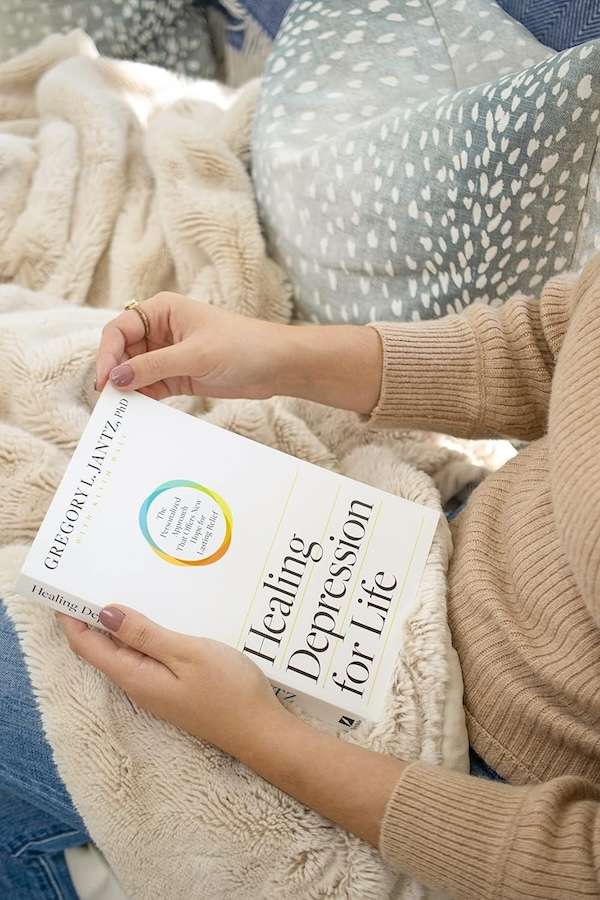
Is your Love Tough Enough to Help Me?
– Aileen
“Tunnels of darkness penetrate my mind,
and soon, little to no sun amidst the narrowness I find.
The more I succumb to such abyss,
The more of my strength I dismiss.
Pain and uncertainty skirted every border in my head.
To no avail of asylum or consolation I am led.
Dull, such excruciating numbness, an ill-founded agony.
Grips me, pulls me, imprisons me deep in misery.”
Confusion, empty mood, hopelessness, indecisiveness, anxiety, and helplessness are common symptoms of depression. In the book Healing Depression for Life by Gregory L. Jantz, Ph.D., “Depression is a song inside of us, and it keeps singing.”

Living a life accompanied by unpredictable pain and plummeting mental strength can affect various facets of our lifestyle, not to mention influencing how we deal with other people and work on our goals. Depression or exhibiting symptoms of depression can take hold of our capacity to make sound decisions and sway us to become more restrained and passive. We gradually surrender to our variable emotions and follow our fickle moods.
Somehow, we often associate these indications with a typical case of the blues. Our mood swings are nothing exceptional with other people and may occur once in a while. However, symptoms that last sixty to ninety days may enable us to lose our ability to snap out of the situation. The truth is, the lasting recurrence of these symptoms makes you a candidate for clinical depression.
Different Factors Leading to Depression Symptoms

Medications, unhealthy sleep patterns, and various behavioral habits may lead you to experiencing symptoms of depression. There are physical pollutants in the body called neurotoxins that can also drive you to a mental disorder. These are preservatives and artificial ingredients found in our food and drinks.
Addiction to technology use causes us to isolate and create a social conflict, which prompts feelings of insecurity. However, there are soft addictions prevalent in each one of us, which we sometimes overlook and camouflage as a way of life or happiness triggers. For instance, binge eating on foods and watching television for hours are some of the elements that may contribute to our unstable disposition. People who find shopping online or in physical stores as stimulating and relieving may risk falling into soft addictions if done recurrently or to fill in an emotional emptiness. You may also choose to play video games for several hours, or even oversleep.
Some negative emotional factors also cause a person to dwindle to a depressive state. Pampering unforgiveness in our hearts plants resentment that alters our character and mentality. Choosing not to forgive someone will establish bitterness and grow into hatred progressively, until you feel the negativity residing in you. As you continue to feather-bed negative emotions, it will eventually result in depression.
Three Toxic Emotions that Lead to Depression
- Anger – is a result of unresolved hurt in a person, which can instigate bitterness, resentment, and isolation. Anger can also be directed inwardly, which is a risk of inflicting self pain or destruction.
- Fear – lingers the question, “What if?” We ask ourselves what will happen if we choose a different path in life or decide differently from what we settled in. Constant fear and questioning of beliefs and decisions may get out of hand and result in anxiety and panic attacks.
- Guilt – can be classified as either true guilt or false guilt. True guilt springs from identifying something we did wrong. False guilt is unjustified and without any moral grounds to its manifestations. It can result to feeling ashamed and unworthy.
Symptoms of Depression
How do you know if you are suffering from depression? Here are some of the symptoms below:
- Experiencing a persistent empty mood
- Looking at things from a pessimistic viewpoint
- Becoming restless or irritable
- Early-morning awakening, oversleeping, or difficulty sleeping
- Suicidal thoughts or attempts of suicide
- Constant and consistent feelings of sadness and anxiety
- Feelings of hopelessness
- Changes in weight or appetite
- Losing interest in pleasurable activities and hobbies
- Fatigue or decrease in energy level
- Difficulty in remembering things or concentrating
- Struggle to make decisions
- Consistent helplessness and worthlessness
- Feelings of guilt
- Physical symptoms like indigestion or body aches
Is There a Way Out of Depression?

According to researches and medical experts, there is no healing for depression. Symptoms of depression stay and recur, which causes patients to simply go with it or choose to live with it for the rest of their existence.
However, we as Christians believe in the greater healing power of God. His mercy prevails, no matter how the world sees it as impossible. He surpasses the impossibility. And He will transcend your depression. There is hope in the Lord. Such hope fuels our faith and continues our dedication to surrender our condition only to Him.
The book, Healing Depression for Life by Gregory L. Jantz, Ph.D., introduced various treatments for dealing with depression but points out that a single approach can be ineffective. If we force the saying “one shoe fits all,” it will overlook other needs and priorities in ourselves that are vital in our complete healing from depression.
Taking antidepressants is effective for people with severe and detrimental symptoms that need immediate care, but may produce addicting side effects. Talk therapy deals with past wounds and present circumstances however a slow process and not ideal for those who consider suicide.
Cognitive Behavioral Therapy, or CBT, integrates strategies to alter distorted thoughts and attitudes of a person. It can be as effective as antidepressant medications for less severe depression but takes no notice of medical and environmental factors. Prayer and meditation enforce our faith and surrender to our Lord. It acknowledges our need for spiritual healing and our vulnerability in this world. However, prayer alone without any course of action may risk not confronting other factors such as your sleeping habits, diet, emotions, and possible addictions.
Lastly, many people with depression are compelled to simply do nothing at all. To deal with their depression symptoms, they choose to accept their condition and muddle on. Going through depression has become a new normal and a part of their existence in the world. They believe that there is no more healing for depression.
Social stigma also shapes the perspective of patients with depression to choose isolation and secrecy. It has become a deterrent for many people, thus denying the symptoms is a safer approach.
Seeing Depression as a Whole Person
While these treatments have their share of efficacy in dealing with depression, employing them singly may not produce the maximum benefit of healing the mental condition. What we can do is encompass every aspect and approach depression with the Whole-Person Treatment.
The Whole-Person Treatment excavates various facets in our lives that contribute to our mood swings, hopelessness, helplessness, despair, and even self-harm. It explores our diet, allergies, technology use, sleep habits, and physical conditions. Seeing things holistically, it will get to grips with your emotional environment, spirituality, life circumstances, built-up toxins, and addictions.
The question remains, “If you have been dealing with depression for a short or long period of time and tried several to no treatments, in considering the Whole-Person Treatment, what have you got to lose?”












